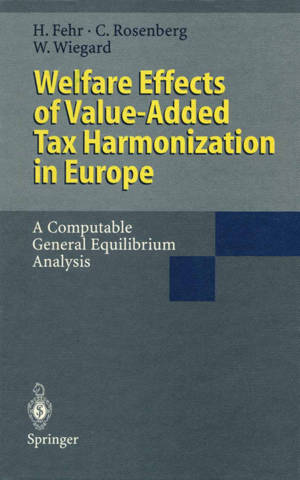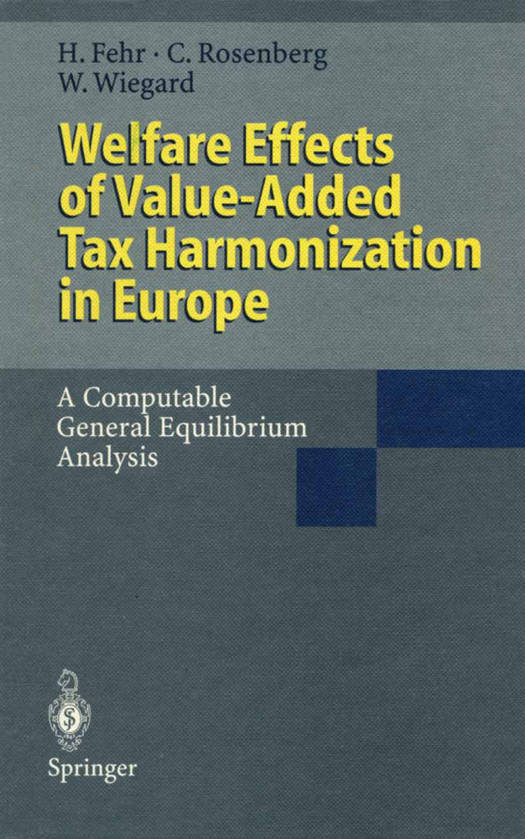
Door een staking bij bpost kan je online bestelling op dit moment iets langer onderweg zijn dan voorzien. Dringend iets nodig? Onze winkels ontvangen jou met open armen!
- Afhalen na 1 uur in een winkel met voorraad
- Gratis thuislevering in België vanaf € 30
- Ruim aanbod met 7 miljoen producten
Door een staking bij bpost kan je online bestelling op dit moment iets langer onderweg zijn dan voorzien. Dringend iets nodig? Onze winkels ontvangen jou met open armen!
- Afhalen na 1 uur in een winkel met voorraad
- Gratis thuislevering in België vanaf € 30
- Ruim aanbod met 7 miljoen producten
Zoeken
Welfare Effects of Value-Added Tax Harmonization in Europe
A Computable General Equilibrium Analysis
Hans Fehr, Christoph Rosenberg, Wolfgang Wiegard
Paperback | Engels
€ 52,95
+ 105 punten
Omschrijving
This book uses a computable general equilibrium framework to eval- uate recent value-added tax reform proposals in the European Union from a welfare point of view. After the publication of the "White Paper" (1985) on the completion of the internal European market, an intense and heated debate about tax impediments to free trade set in. According to the original plans of the Commission of the European Union, not only physical border controls but also fiscal frontiers within the European Union would have been abolished on New Year's Day 1993. With respect to value- added taxation this amounted to replacing the destination by the origin principle. Even though the origin principle had been favored by some economists from the establishment of a common European value-added tax system, time was not yet ripe for this change. In December 1991, the ECOFIN Council could only agree on the so- called transitional system. In essence, these transitional arrangements maintain the destination principle as far as possible but shift the border tax procedure from national frontiers to firms. The transitional system is supposed to expire on December 31, 1996, with the final solution for value-added taxation in the European Union being decided upon by the ECOFIN Council until December, 1995. In the event of no decision the transitional arrangements will be continued. The most likely solution will be a switch to the origin principle combined with some clearing mechanism to prevent major revenue reallocations between member states.
Specificaties
Betrokkenen
- Auteur(s):
- Uitgeverij:
Inhoud
- Aantal bladzijden:
- 240
- Taal:
- Engels
Eigenschappen
- Productcode (EAN):
- 9783642794957
- Verschijningsdatum:
- 19/01/2012
- Uitvoering:
- Paperback
- Formaat:
- Trade paperback (VS)
- Afmetingen:
- 156 mm x 234 mm
- Gewicht:
- 358 g

Alleen bij Standaard Boekhandel
+ 105 punten op je klantenkaart van Standaard Boekhandel
Beoordelingen
We publiceren alleen reviews die voldoen aan de voorwaarden voor reviews. Bekijk onze voorwaarden voor reviews.











